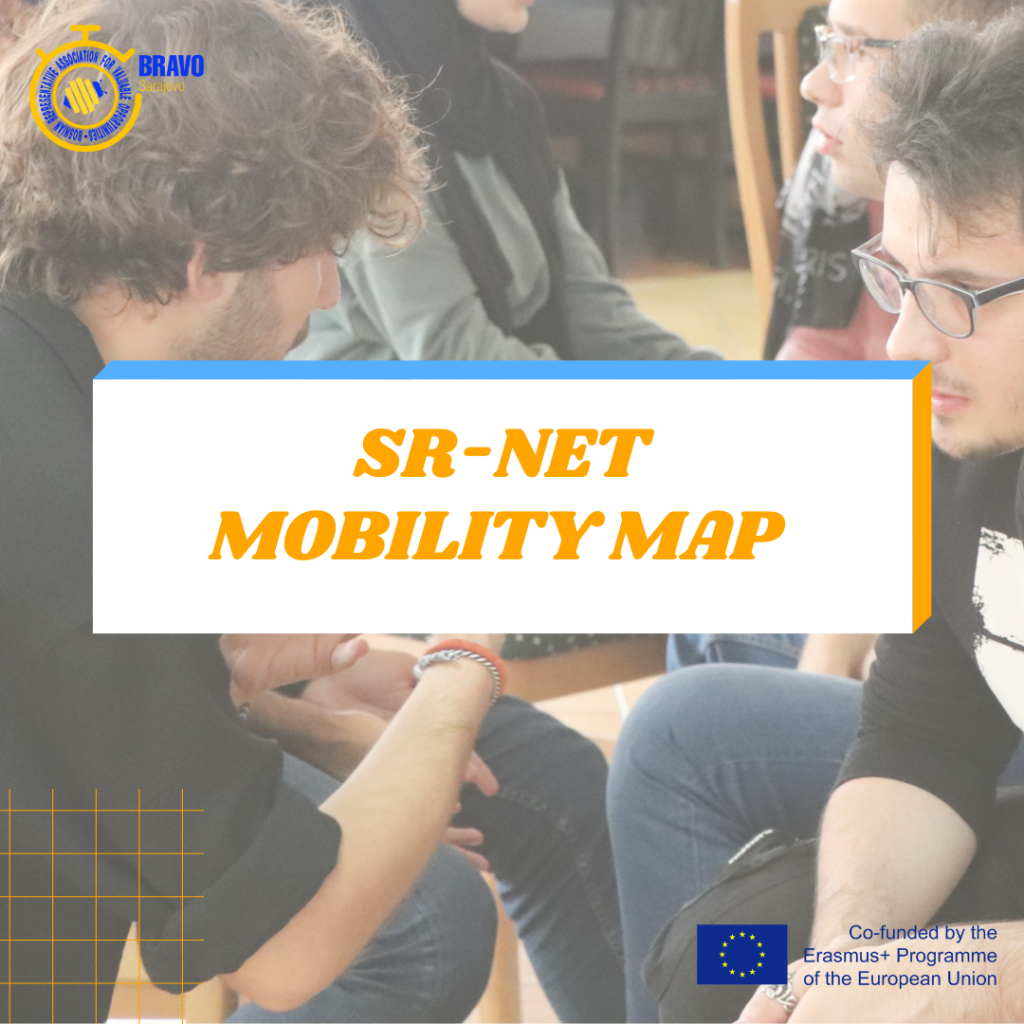
As part of the SR-NET project, BRAVO BIH held a workshop using the Mobility Map method.
The process to youth social inclusion and participation, as reconciliation is long and NGOs in the area are unique position to offer timely response to current issues and more accurate services, in support and in coordination with existing ones initiatives for regional cooperation and mobility.
In order to provide better services, NGOs and youth organizations need adequate financing and sufficiently trained staff, not only to deal with disengaged youth directly but also by making ‘adults’ (SMEs, making public authorities and decision-makers) more aware of the social, educational and economic needs of youth. Most importantly, they need the ability to create and manage functional local networks for an effective and participated local dialogues – aimed at reconciliation, and youth participation in community or politics-related initiatives and activities.
Accordingly, there was a need for this type of workshop. In addition to socializing and learning new things, the participants had the opportunity to familiarize themselves with the mentioned method. In addition, through brainstorming and focus group interviews, they came to conclusions about non-formal education and how to improve it.
MORE INFO ABOUT PROJECT
The process to youth social inclusion and participation, as reconciliation is long and NGOs in the area are in the unique position to offer timely response to current issues and more accurate services, in support and in coordination with existing initiatives for regional cooperation and mobility.
In order to provide better services, NGOs and youth organizations need adequate financing and sufficiently trained staff, not only to deal with disengaged youth directly but also by making ‘adults’ (SMEs, making public authorities and decision-makers) more aware of the social, educational and economic needs of youth. Most importantly, they need the ability to create and manage functional local networks for effective and participated local dialogues – aimed at reconciliation, and youth participation in community or politics-related initiatives and activities.
SR-NET is based on a solid partnership between 7 organizations in possession of a good experience in community development, human rights and youth empowerment, all devoted to initiating and maintaining collaboration for active social inclusion and participation.
An innovative character of the project stems from adding concepts typical of the business field and adapting them to a non-formal/youth environment. Topics such as sustainability, participatory planning and fund raising can be powerful tools to make local community more cohesive, resilient and better prepared to include youth in their plans for the future. The partners are going to use those concepts and prepare a program that they can use to plan local activities with a stronger support by local community and offer youth more sophisticated non-formal education activities better in line with their needs.
The WBs NGOs will learn how to use:
*CSR to communicate better with local economic actors, to involve and motivate local actors in sponsoring youth-oriented activities
*participatory planning techniques to make sure that the whole community is involved in the process
*non-formal education techniques, to engage and motivate youth in following the propose activities and get a real benefit from it.
In this respect, the project addresses the needs of youth operators working regularly in support of disadvantaged youth with low education and skills, by offering a week long training in Croatia aimed at refining their capacity for using participatory planning and CSR as motivators for SME involvement.
Participatory planning and communication tips will be adapted to fit WBs youth operators, based on their local needs and most importantly made culturally acceptable for the very different Countries, in order to respect their sensitivity and national tradition and culture.
The cooperation is composed of a balanced and complementary mix of organizations including NGOs experienced in non-formal learning, association specialized in CSR and participated planning and evaluation. They all have experience in working with the target group. The complementarity of the consortium maximises mutual benefit and transfer of good practices.
